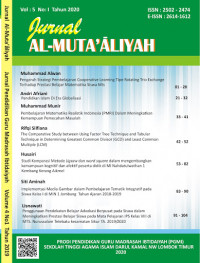e-jurnal
Lingua : TRANSITIVITY ANALYSIS OF AFGHAN WOMEN IN ÅSNE SEIERSTAD’S THE BOOKSELLER OF KABUL
Transitivity analysis is the tool offered by Halliday’s Systemic Functional Grammar (SFG) to observe the writer’s/ speaker’s experience of the real world. In the novel entitled The Bookseller of Kabul, Åsne Seierstad’s description of Afghan women reveals how they are represented in the story. By observing the different characters in the novel, this research focuses on outiling three different woman character roles: wife (Sharifa), mother (Bibi Gul), and daughter (Leila). Stylistic approach focusing on the grammatical features is utilized in this research. The writer’s descriptions of Sharifa, Bibi Gul, and Leila are categorized into the transitivity processes adopting Halliday’s SFG. The analysis shows that different woman roles are represented in similar processes: material, mental, relational, verbal and behavioral. The processes reveal that Afghan women are represented as submissive and devoted characters. Behavioral process is only used to reveal the characters’ being submissive, while material process is employed the most to portray Afghan women’s devotion to the family.
Ketersediaan
Informasi Detail
- Judul Seri
-
-
- No. Panggil
-
305.3 Ari t
- Penerbit
- Malang : IUN Malang., 2019
- Deskripsi Fisik
-
-
- Bahasa
-
English
- ISBN/ISSN
-
2442-3832
- Klasifikasi
-
305.3
- Tipe Isi
-
-
- Tipe Media
-
-
- Tipe Pembawa
-
-
- Edisi
-
Vol 14 No 2
- Subjek
- Info Detail Spesifik
-
-
- Pernyataan Tanggungjawab
-
Prodi PBA
Versi lain/terkait
Tidak tersedia versi lain
Lampiran Berkas
Komentar
Anda harus masuk sebelum memberikan komentar

 Karya Umum
Karya Umum  Filsafat
Filsafat  Agama
Agama  Ilmu-ilmu Sosial
Ilmu-ilmu Sosial  Bahasa
Bahasa  Ilmu-ilmu Murni
Ilmu-ilmu Murni  Ilmu-ilmu Terapan
Ilmu-ilmu Terapan  Kesenian, Hiburan, dan Olahraga
Kesenian, Hiburan, dan Olahraga  Kesusastraan
Kesusastraan  Geografi dan Sejarah
Geografi dan Sejarah